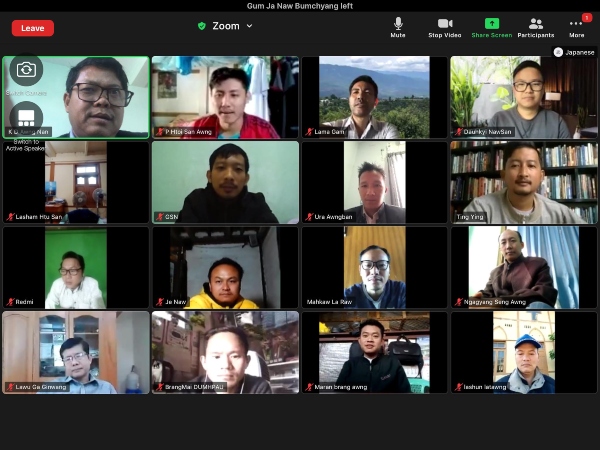IGE Holds Religion and Rule of Law Training for Kachin Leaders in Myanmar

From December 14-16, 2020, IGE held a Religion & Rule of Law training program in partnership with the Kachin Baptist Convention (KBC) and Brigham Young University Law Center’s International Center for Law & Religion Studies (ICLRS). The training focused on church leaders, legal scholars, lawyers, journalists, and civil society leaders from the Kachin people, a majority-Christian ethnic minority group in Myanmar that has been embroiled in conflict with the Burmese military. Throughout the conflict, which has been characterized as a “slow genocide,” Kachin civilians have suffered death, torture, rape, and other atrocities along with the destruction of villages and churches. There are currently over 100,000 Kachin who have been forced from their homes and are living in refugee camps along the Myanmar-China border.
The training program represents the second collaborative effort between IGE, ICLRS, and KBC after the success of the inaugural training held the previous year in Mandalay. Due to the pandemic, this year’s training was held online. There were 50 participants from 10 different regions of Kachin State in Myanmar. While the first program focused solely on church leaders, this year’s program was expanded to include legal scholars, lawyers, journalists, and civil society organization leaders working in Kachin State.
The training provided a rare opportunity for Kachin leaders to hear from international experts and practitioners in religion, law, and religious freedom. Case studies from different countries such as Singapore, China, Indonesia, and the U.S. provided insights on the challenges and results of different models. One of the participants, Ting Ying, who serves as KBC’s Director of Youth Education, shared, “What should we do in the midst of the chaos and conflicts [that Kachin face]? That was the question I had. This training answered my question…Having a chance to learn from the case studies was very valuable…I would like to express my heartfelt gratitude to the organizers and faculty of this training.”
My name is Ting Ying. From 2016 to 2020, I served as the Director of Youth Education Department of the Kachin Baptist Convention (KBC). I am planning for further study in 2021. I have learned a lot from this training. There are many contents that would help me reflect my thoughts continuously. When I reflect from [the] Kachin context, I came to understand that Kachin’s live in [a] religious based community/society. In both pre and post Christianity, religion plays [a] very important role in shaping Kachin society. Kachin’s find their meaning in religion and they interpret their politics, economy, and life style in their religion and belief. Christianity is what elevated us to be [a] more civilized society today. We find the importance of religion’s role even today. Similarly, when we look into our country’s political situation such as armed conflicts and racial conflicts, we observe that religion is one of the key root causes of the problems. On the other hand, religion is also the solution to political, social, and racial tensions. In Myanmar politics, religion has always been used as political tools for the benefit of dictators and military junta. It is still an ongoing challenge we are dealing with today. There are radical religious groups that create tensions among different religions and spreading hate speech. What should we do in the midst of these chaos and conflicts? That was the question I had. This training answered my question. Especially [the] Singaporean model where [the] Singaporean government ensures freedom of religion for its citizen and at the same time they impose the rule of law. Having a chance to learn such case studies were very valuable. I really appreciate the example of [the] Middle East’s experience and comparing that with international principles. Learning from our neighboring countries such as Indonesia’s experience and China’s situations. Having a chance to learn how religious freedom and rule of law can be harmoniously achieved was very valuable to us. I would like to express my heartfelt gratitude to leaders who organized this training, those who communicated and connected to make sure this program a success, and all the faculty who presented at the training. Please continue to work with our community and continue your partnership with KBC to share knowledge and experience with us. That would be very beneficial to us. Thank you so much.